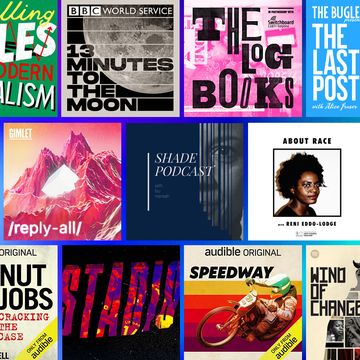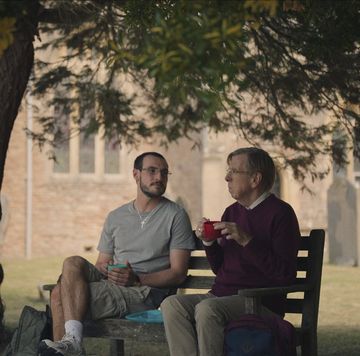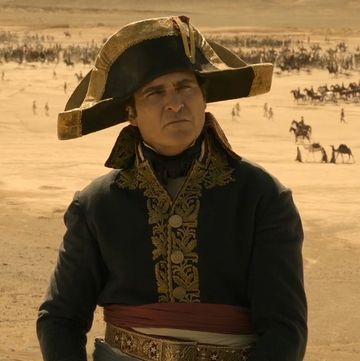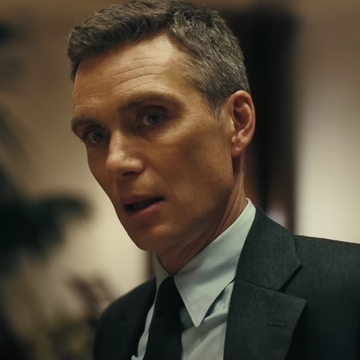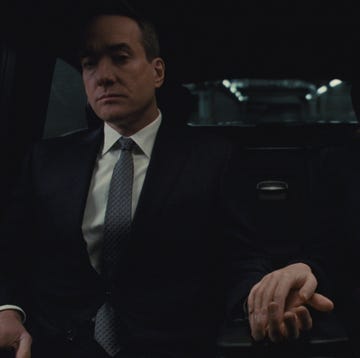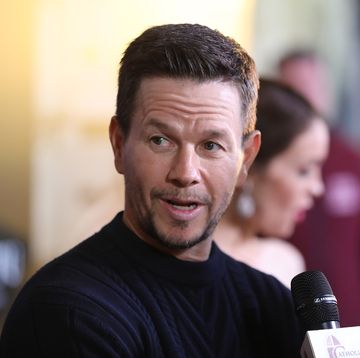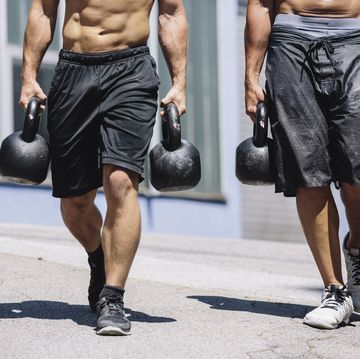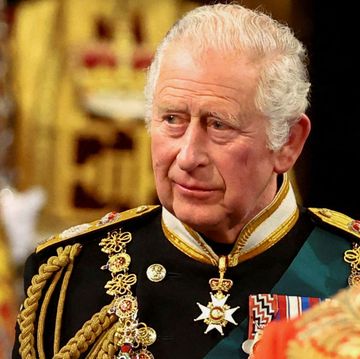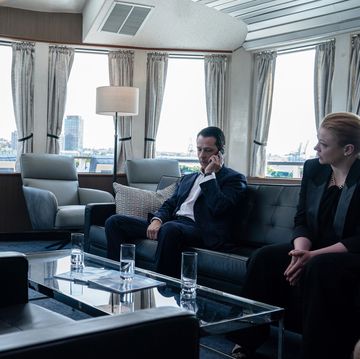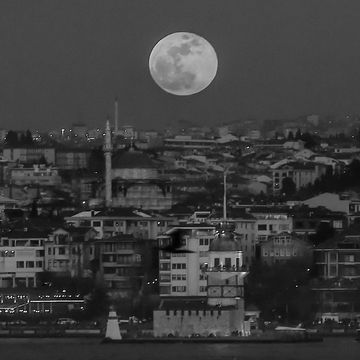Back in 2009, Kanye West was still on the hook for a comparatively mild offence that involved grabbing the microphone from Taylor Swift at the MTV VMAs. We've all heard the story, and the near decade-long drama that followed. Shortly after it happened, though, he sat down with Jay Leno and apologised. "I've really struggled dealing with the fact that I hurt someone," West told Leno.
You see, in West's mind, this was a totally rational thing to do; he wasn't sorry that he did the thing he did, only sorry that someone was hurt by the thing he did. It introduces the strange logic by which West lives his life—floating from decision to decision with very little thought about what he's actually doing or saying and how it's affecting people.
Flash forward nine years: West, this summer, has been doing the same thing, but with much more at stake. Before he released a string of albums (his own ye, Pusha T's DAYTONA, Teyana Taylor's K.T.S.E., and the Kid Cudi collaboration KIDS SEE GHOSTS), West—among other things—endorsed Donald Trump and a number of alt-right figureheads and ideologies, and then said that slavery was a choice on TMZ.
It's not good. None of it. No matter how you think about it.
But West has made it abundantly clear that he was not thinking about any of it.
In a new interview for Chicago’s Hip-Hop station 107.5 WGCI, West makes his big apology again, and in the same exact way.
The thing about being called crazy, the biggest stigma that has to be broken is that you instantly get written off. But you might be the only one who knows what they’re talking about. Also what I wanna say to everyone listening right now—I have never really approached or addressed the slavery comment fully. And it’s not something for me to overly intellectualise. This is something about the fact that it hurt people’s feelings and the way that I presented that piece of information. I could present in a way more calm way, but I was ramped up. And I apologise. That happens sometimes when people are—I’m not blaming mental health, but I’m explaining mental health. I don’t know if I properly apologised for how the slavery comment made people feel. I’m sorry for the one-two effect of the MAGA hat into the slave comment, and I’m sorry for people that felt let down by that moment. And I appreciate you giving me the opportunity to talk to you about the way I was thinking and what I was going through.
There it is, that logic again—that his action didn't matter only that people were hurt by it.
He applies this same way of thinking, hilariously, to the beef with Pusha-T and Drake.
It hits me in a really sensitive place ... Because you, like, hang around people and they come to your house and be around your family and this and that, and then they get mad about a beat and then send you purple demon emojis ... We all got love for Drake. We understand that he got upset about [“The Story of Adidon”]. I feel that it was insensitive for him to, in any way, stress me out in any way after TMZ, while I’m in Wyoming healing, pulling all the pieces together, working on my music. And you know, we’ll reconcile that one day because we got to, because we got work to do, and these voices is just too powerful.
Again, West is sorry that Drake got mad. He's sorry that Drake was hurt. He doesn't apologise for what Pusha-T said on the album produced by West and released on West's label. He doesn't apologise for the savage diss track (granted, West was only a peripheral player in this beef). He's just sorry that Drake is mad at him.
It's a fascinating—and deeply narcissistic—way of thinking, which West also uses to excuse Trump's repeated racism:
I feel that [Trump] cares about the way black people feel about him, and he would like for black people to like him like they did when he was cool in the rap songs and all this. He will do the things that are necessary to make that happen because he’s got an ego like all the rest of us, and he wants to be the greatest president, and he knows that he can’t be the greatest president without the acceptance of the black community. So it’s something he’s gonna work towards, but we’re gonna have to speak to him.
It's not about Trump's many actions marginalising people of colour, it's about Trump (supposedly) realising he's hurt these people. And, most importantly, none of these apologies excuse any of his (or Trump's) actual actions.
Matt Miller is a Brooklyn-based culture/lifestyle writer and music critic whose work has appeared in Esquire, Forbes, The Denver Post, and documentaries.


